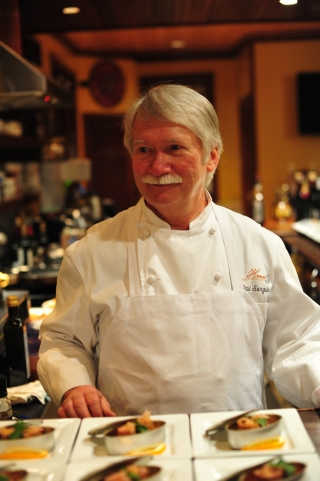
Will Back to Normal be Normal?
03 June 2021This is not the time to hope for a return to the way things were. This is a perfect opportunity for reinvention.
By Paul Sorgule, MS, AAC
“Normal is not something to aspire to, it’s something to get away from.”
– Jodie Foster
Normal is comfortable. It allows us to fit into a groove and polish our delivery skills so everything becomes second nature. When normal occurs, we breathe a sigh of relief and rest easy knowing exactly what to expect and what to do next. Normal is something that we all seek - a goal of sorts that makes us feel as if everything is good and right. Normal, however, is oftentimes out of our control and in some cases cannot remain part of a person’s vocabulary, let alone a goal to achieve.
2020-21 taught us that what was normal isn’t working anymore. This applies to the restaurant business and the education of those who aspire to be a part of the food industry.
Here is the new reality: restaurants are broken and so is culinary education.
I am sorry to be so blunt, but this is where we are. We all know the challenges by now - a fading labor pool, terrible work/life balance, a lack of competitive wages and benefits, declining school enrollments, escalating costs and programs that are not user-friendly. This doesn’t even touch the issues the pandemic brought to the surface with supply chain, mandated conditions of operation, customer fear of exposure, etc. So why is it that many believe as we gradually move to healthier times and the pandemic is brought under control, we will be able to return to the way things were?
Normal may never be normal again. And maybe this is a good thing. Try the following food for thought on for size:
* How might the next batch of students be different?
Where will your students come from in the years ahead with seriously declining enrollments? Is there a strategy that will move your admissions office in new directions? If not, what are you waiting for?
* How might student expectations change?
What will your new value formula look like? Have you researched how expectations might change? How will students and employers measure your success in delivering this value? Are you ready?
* How might the content of your curriculum change?
Let’s face it, we have all been teaching the same material for decades. Everything around us is changing. How will our curriculums adapt? How are we embracing the technology that will change everyone’s life tomorrow and in the years to come? Nutrition, food safety, cost control, pricing strategies, efficiency in the kitchen, supply chain management, staffing strategies and training, and systems management are topics that should be addressed differently and more substantially in the future. Are you having these discussions?
* How should the format for delivery change?
There is no question that most of us were caught off-guard when the pandemic forced education to move online. We weren’t ready and we still aren’t ready to engage in alternative methods of delivery. We still expect that normal will mean students commit to two or four years in an on-campus model as they accumulate substantial debt in the process. Where is the alternative thinking when it comes to delivery that is user-friendly?
* How might graduates’ opportunities change?
Careers in food go way beyond working in restaurants. Are we adequately preparing students for those other options? Are we just as excited about presenting those options as we are about the restaurant segment?
* How should your teaching methods change?
Just as our content has remained somewhat stalled for decades so has our method of delivery. Consider that many chef instructors came directly from industry to the classroom without the benefit of understanding teaching methodology. Isn’t it time to break that cycle and move our faculty more toward teaching strategies rather than just training methods?
* How will the overall idea of culinary education change?
A larger question should be: What is our purpose and what are we trying to achieve? Are we strictly around to support the normal or might culinary education take the lead in redefining what the food business can accomplish?
* How could we help the restaurant industry change?
We might actually achieve fresh and exciting results when we take time to think differently. Then culinary education could very well be a vehicle to help many facets of the food business face tomorrow with loads of optimism.
So, are you ready to create the new reality in September 2021 and beyond? Or are you crossing your fingers and hoping for a return to normal? This is not the time to hope for a return to the way things were. This is a perfect opportunity for reinvention.
PLAN BETTER – TRAIN HARDER
Paul Sorgule, MS, AAC, president of Harvest America Ventures, a mobile restaurant incubator based in Saranac Lake, N.Y., is the former vice president of New England Culinary Institute and a former dean at Paul Smith’s College. Contact him at This email address is being protected from spambots. You need JavaScript enabled to view it..
